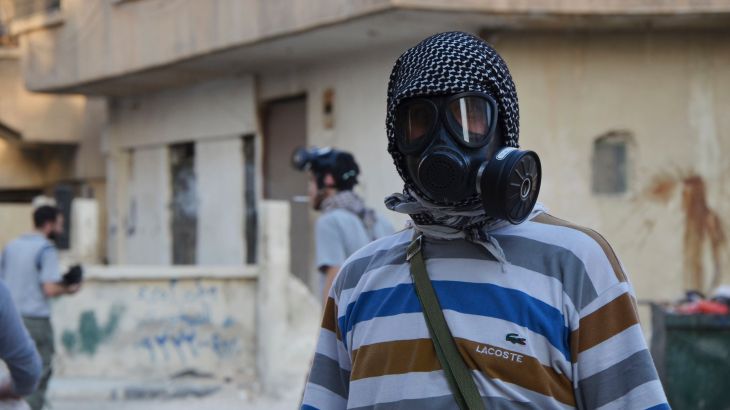
Syria: Chemical warfare?
As suspicion grows about the alleged use of chemical weapons, we ask if a political solution is still possible.
In Syria, women and children were among the dozens found dead under suspicious circumstances this week. Rebel forces said more than 1,000 people were killed by the government in a chemical weapons attack, while the authorities dismissed the report as “baseless”.
Syrian activists claimed that government forces had carried out a “poisonous gas” attack, in what would be the worst reported use of chemical weapons since the two-year civil war began.
Estimates of the death toll vary widely but doctors and opposition leaders said more than 1,300 people had been killed.
... There is not much that we know about exactly what happened, but it is clear that the victims have suffered from asphyxiation and most of their symptoms are consistent with some kind of chemical agent … What's particularly important is that none of the victims displayed any exterior wounds.
The attack was said to have taken place on Wednesday in Eastern Ghouta, an area of countryside to the east of the capital Damascus. Activists said reports came in from Ein Tarma, Zermalka and Jobar.
The incident coincided with a visit to Syria by a 20-member UN chemical weapons team, which was staying just 16km away – in downtown Damascus.
Coincidentally, the UN team was in Syria to investigate three sites where chemical weapons attacks had allegedly occurred over the past year.
Al Jazeera’s Nisreen El-Shamayleh, reporting from neighbouring Jordan, said there were videos allegedly showing both children and adults in field hospitals, some of them suffocating, coughing and sweating. Al Jazeera, however, cannot independently verify the footage.
There were no hesitations in the international reactions to Wednesday’s attack.
France declared that the international community needs to respond with force if allegations are confirmed. But French Foreign Minister Laurent Fabius also said the response should not include boots on the ground.
Turkey said red lines have been crossed in Syria, and Prime Minister Recep Tayyip Erdogan said that only the Syrian government possessed chemical weapons.
Iran disputed that assertion, and said that if the reports are confirmed, it would likely be so-called “terrorist groups” that used chemical weapons and were to blame. The US and Britain are meanwhile among the 35 countries who have called for the UN to investigate what took place in Ghouta.
So, where does this incident leave the international community, if the so-called red line has been crossed? And is a political solution still possible for Syria?
To discuss this, Inside Story, with presenter Jane Dutton, is joined by guests: Dina Esfandiary, a research associate on the non-proliferation and disarmament programme for the International Institute for Strategic Studies, who specialises in chemical weapons and security; Firas Abi Ali, the head of the Middle East and North Africa country risk team for IHS Global; and Nikolaos Van Dam, the former Dutch ambassador to Egypt and Iraq.
|
“The three explanations that are being thrown around are: that Assad deliberately did this as a sort of … intention to offend the international community while the inspectors were there, I don’t think that is particular probable. The other explanation is that this was the rebels using chemical weapons in order to draw attention, and in order to encourage foreign intervention. I have seen no evidence that they [have] got this kind of capability …. The third explanation, which is the one that I am partial to, is that this was somebody within Assad’s inner circle, worrying that Assad was willing to make compromises, was willing to negotiate and wanting to force him into a hard line, therefore choosing to conduct these attacks at this time.” Firas Abi Ali, head of the Middle East and North Africa country risk team for IHS Global |